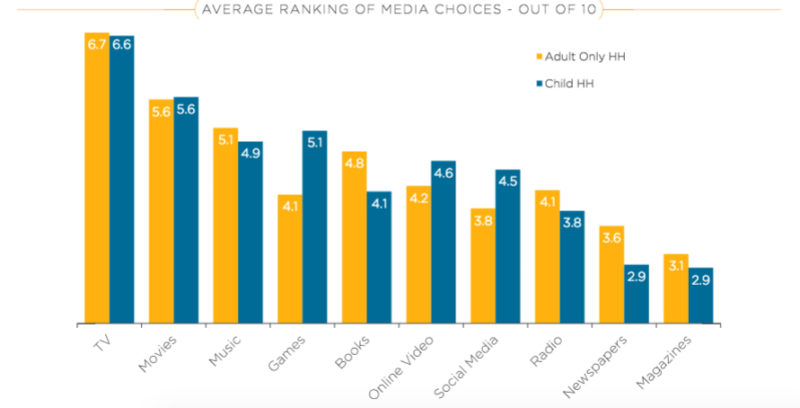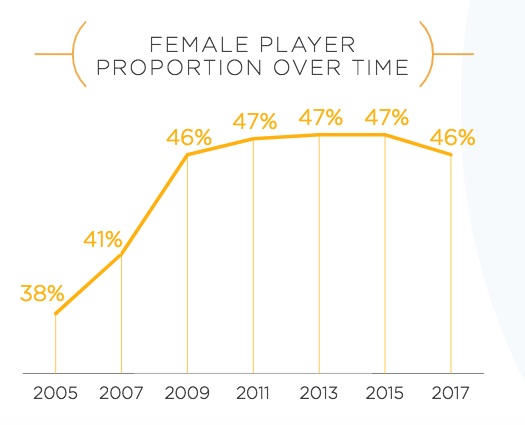
Older Australians are playing more online games, but marketers are still challenged says IGEA
The advertising industry is finding the games industry a challenging place, but as more Australians are playing online, advertisers are going to have to figure out how to engage with the market says Ron Curry, CEO of the Interactive Games & Entertainment Association.
Curry was speaking to Mumbrella about the Digital Australia 2018 report released this week which examined the how Australians are entertaining themselves online.
“The one big take away is everyone is playing – it’s no longer this niche group or the stereotypes. People don’t identify themselves as book readers or television watchers or radio listeners so they are no longer calling themselves gamers,” said Curry.
“It becomes very exciting now as we take the game mechanics and that acceptance of the medium and move it into health, education, business and that’s what we’re seeing. Not just gaming for games’ sake, it’s moving beyond that.”
Digital Australia 2018 is the seventh study in a series that began in 2005, examining the demographics of Australians who play games, play habits, behaviours and attitudes.
This year’s study surveyed 1,234 Australian households and 3,135 individuals and found two thirds of Australians are playing video games with 46% of players are women and 43% of those over 65 played games. Overall digital games’ sales saw a 20 per cent annual growth rate between 2013 and 16.

Curry agrees with PwC’s Megan Brownlow that eSports will be one of the big drivers for marketers in the online space: “It’s is a really interesting area and our research is showing that people are really engaged in e-sports either as an entertainment medium or as a learning medium.”
“It’s messy at the moment. It’s early days and everyone is trying to get involved and no-one’s quite sure where their feet are so we’ll wait to see where we land.”
“Advertising and marketing are used to creating TVCs, they are used to creating billboards and all that static media. This is a new media, it’s an engaging media, an interactive media and smart advertisers will use that to engage their audiences.

“Understand that our audience is quite cynical. They are happy to be engaged with but they want to be engaged with on their terms,” continued Curry. “There’s ways of creating engagement for brands within a game. We’ve seen brands experimenting within games.”
“The development side is right for the picking, it’s a hundred billion dollar industry and Australia should be targeting a much larger part of that. Given that it’s what we call a ‘clean export.’
“If we take the last couple of elections we’ve seen the political parties use games to engage and tell a story. Certainly from an advertising and marketing point of view there’s lots of ways to reach the consumers.”
“Advertising and marketing are used to creating TVCs, they are used to creating billboards and all that static media. This is a new media, it’s an engaging media, an interactive media and smart advertisers will use that to engage their audiences.
“Understand that our audience is quite cynical. They are happy to be engaged with but they want to be engaged with on their terms.”

The big challenge for the domestic games industry is developing an ecosystem for the sector, Curry believes: “In Australia we have lots of graduates coming out but they don’t have many mentors when they come out, people like producers are impossible to get at because they’ve moved offshore.”
“The bigger – mid to large – studios aren’t available and that mentorship isn’t there for the grads so to our mind you need a healthy ecosystem. You need some very big players, some good solid medium players and a healthy independent base. They feed off each other.
Curry says the Federal government can assist the domestic games sector by applying the producer offset to the industry, citing the successes of the Canadian provinces in attracting studios: “It does help, it builds confidence in the business and attracts investors into the business.”
“We know most Australians play. We know the opportunities that games present, both for Australians and the economy. It’s time that the government recognise and treat the Australian video games sector as a legitimate industry,” concludes Curry.


